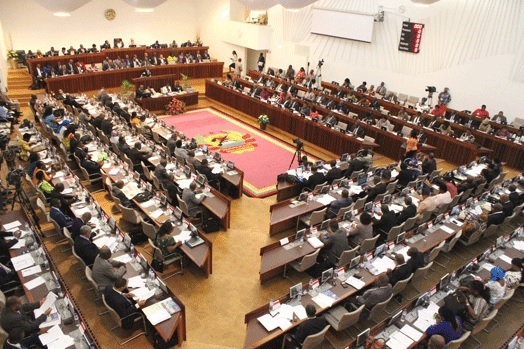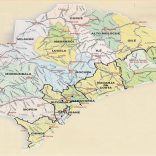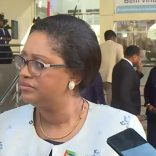Mozambique: Government to set up AI monitoring commission
Mozambican Parliament Approves US$4.92 Billion Revised 2016 Budget

Jornal Notícias
The Mozambican parliament has approved next year’s revised annual state budget in the amount of $4.92 billion by 138 votes to 88 during the first reading of a full bench debate, APA learnt Thursday. All the deputies present from the ruling Frelimo Party voted in favour of the budget, while both opposition parties, Renamo and the Mozambique Democratic Movement (MDM), voted against it.
Thursday’s voting procedure caused a dispute, since the parliamentary chairperson, Veronica Macamo, called for a vote on the budget but not on the government’s Economic and Social Plan for 2016.
Both documents were debated in the house simultaneously in the past two days.
Renamo pointed out that Macamo was breaking with precedent, since in the past the plan has always been voted on before the budget.
Renamo deputy Jose Samo Gudo described the vote as “a fraud which collides with the norms of this house”.
He added: “It is wrong to vote on the budget law before voting on the plan because the budget is the financial expression of the plan”.
He claimed that logic thus determined that the plan be voted on first.
Samo Gudo threatened that Renamo would take this issue to the Constitutional Council, the highest body in matters of constitutional law.
Both the plan and the budget will come back to the Assembly plenary next week, for a final reading and vote.
The budget has already been amended by a series of alterations proposed by the Assembly’s Plan and Budget Commission (CPO).
The Minister of Economy and Finance, Adriano Maleiane, reportedly said the government has accepted all these changes.
The amended budget scales back the 2016 public expenditure and the amount of revenue the state expects to collect, and ends up with a smaller deficit before grants than was the case with the earlier version.
Resources, including domestic debt raised through the issue of treasury bonds, cover 74.8 percent of total planned expenditure, and foreign aid will cover the remaining 25.2 percent.
60 per cent of the foreign resources are expected to be loans and 40 percent grants.
The total expenditure now proposed in the budget is 246.1 billion meticais (about 4.92 billion US dollars, at current exchange rates). Domestic revenue is expected to reach 173.2 billion meticais, leaving a deficit of 69.7 billion meticais.
Domestic resources, including domestic debt raised through the issue of treasury bonds, cover 74.8 per cent of total planned expenditure, and foreign aid will cover the remaining 25.2 per cent. 60 per cent of the foreign resources are expected to be loans and 40 per cent grants.
Planned public expenditure breaks down into running costs of 136.2 billion meticais, a capital budget of 83.9 billion meticais and state financial operations of just over 26 billion meticais.
The amended budget significantly increases provisions for servicing the foreign debt, which rise from slightly less than three billion meticais to 5.3 billion. Doubtless this is due to the recent depreciation of the metical. Since most of the debt is denominated in US dollars, the devaluation means that the counterpart value in meticais has risen.
There is no change to the servicing of the domestic debt, which remains at 7.2 billion meticais. Total forecast debt servicing is thus 12.5 billion meticais.
Under the revised budget, the priority social and economic sectors for the fight against poverty account for 66.6 per cent of planned expenditure, once debt servicing and financial operations are excluded. This is an increase on the 62.5 per cent that went to these sectors in 2015.
22.1 per cent of spending goes on education, 10.4 per cent on health, and 19.7 per cent on infrastructures. The latter breaks down into 13.8 per cent on roads and bridges, 4.4 per cent on water supply, and 1.5 per cent on mineral resources and energy.
9.6 per cent of expenditure is allocated to agriculture and rural development, 2.7 per cent to labour and social welfare, and 2.1 per cent to the judicial system.
The pattern is the same as in the earlier version of the budget, with the largest increases allocated to roads (up from 9.1 per cent to 13.8 per cent) and to agriculture (up from 8.1 to 9.6 per cent).
In his closing remarks on the budget debate, Prime Minister Carlos Agostinho do Rosario promised that the government “will prioritise allocation of resources to drive growth in education, health, agriculture, water and sanitation, energy and public transport, with the ultimate goal of laying the bases for sustainable economic growth, and thus benefitting the entire population of our country, without discrimination”.
Rosario said the government will expand the network of infrastructures needed to support productive activity “prioritizing the geographical regions with the greatest agricultural, fishery, industrial and tourism potential.












Leave a Reply
Be the First to Comment!
You must be logged in to post a comment.
You must be logged in to post a comment.